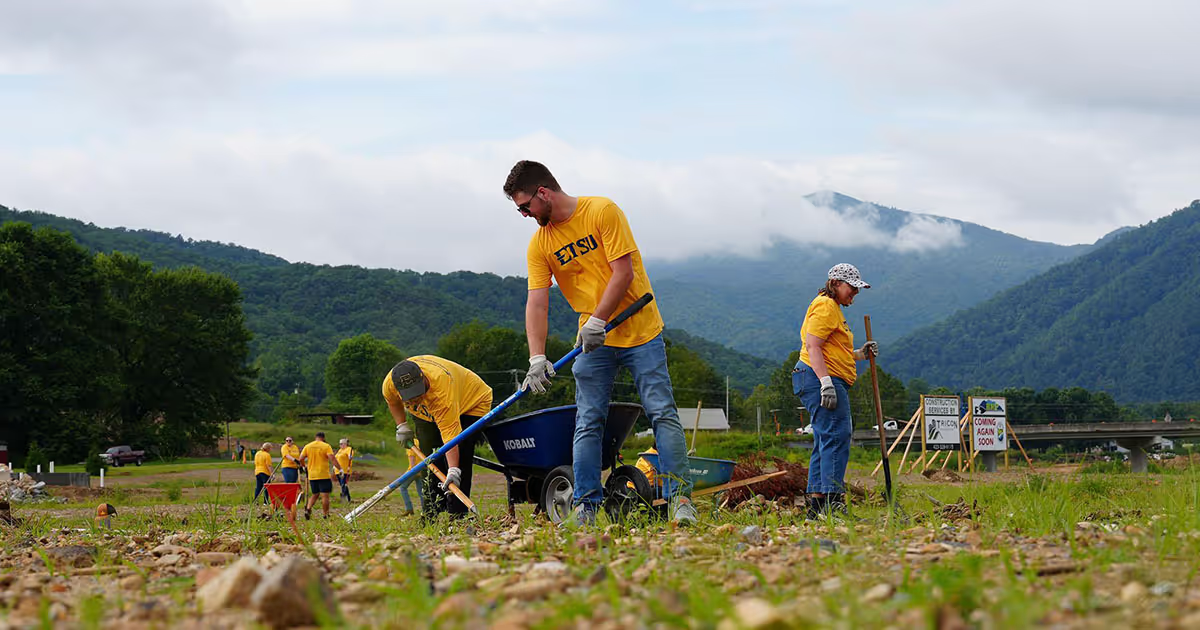Nearly a year after Hurricane Helene caused historic flooding across Western North Carolina, Southwest Virginia and Northeast Tennessee, East Tennessee State University remains engaged in long-term recovery efforts and strengthening regional resilience.
“I am deeply moved by the compassion and resilience our university community has shown in the aftermath of Hurricane Helene. Our institutional mission to improve the quality of life for the people in this region has never been more pronounced than over the course of the past year as we have supported efforts to rebuild not only homes and businesses but also hope for the future.” President Dr. Brian Noland said.
Dr. Andrew Joyner, Tennessee’s state climatologist and ETSU associate professor, said the storm revealed vulnerabilities across urban and rural areas. “We saw flooding that was generational, that no one alive has seen before,” he said. Using new data on floods, landslides and extreme weather, the university is helping local and state leaders plan for future emergencies.
More than 130 ETSU faculty and staff volunteered during Service Days over the summer, assisting with cleanup, rebuilding homes and delivering supplies. Nathan Farnor, ETSU community engagement specialist, said the experience “has impacted me personally. It has lit that fire under me even more to figure out what it is that I can bring,” he said, reflecting the commitment of volunteers to support neighbors and communities across the region.
The university has also expanded long-term preparedness programs. ETSU’s College of Public Health plans to train 500 local high school students in basic first aid and disaster response, providing them with “go bags” for emergencies. Dean Randy Wykoff emphasized that this training is not limited to disasters. “It could be an accident at home or on the farm. We want every high school student we train to have the confidence to prepare and respond,” he said.
Resilience-building extends beyond immediate aid. In May, ETSU hosted a resilience roundtable with the American Institute of Architects to map hazards, including flooding, drought and severe storms. The workshop allowed community members to compare perceptions of local risk with scientific data, providing tools for better-informed planning.
Joyner highlighted the long-term nature of recovery and support. “Survivors rebuild; survivors are resilient. This is a community of survivors,” he said.
Farnor echoed that commitment: “This isn’t over at the first anniversary. The needs will change, but they’re always going to be there.”
Supporting communities affected by Helene reflects ETSU’s mission as a flagship of Appalachia institution. “ETSU is devoted to improving the quality of life of the people of our region. That is our mission. We are truly here,” Farnor said.



.jpg)

